You are bound to encounter two terms associated with sensors and some loads: ‘NPN’ and ‘PNP’. You must understand the relationship between the field…
You are bound to encounter two terms associated with sensors and some loads: ‘NPN’ and ‘PNP’. You must understand the relationship between the field device and the control module in order to choose and install components properly when needed.
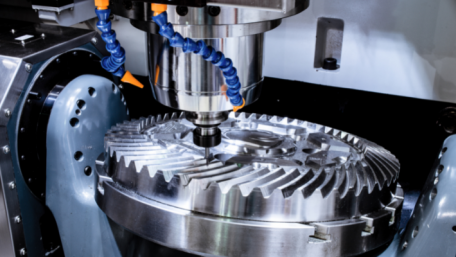
Programming languages often include sine and cosine functions. They simplify programming, but consume valuable memory…
Programming languages often include sine and cosine functions. They simplify programming, but consume valuable memory space and computation time. This can be overcome using simple approximations.
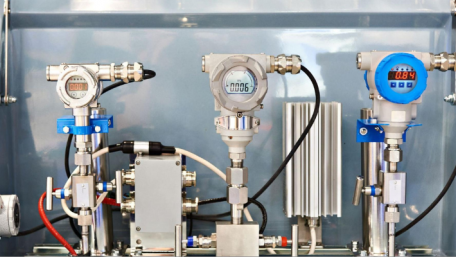
Industrial analog sensor devices primarily use 0-10 volt or 4-20 milliamp. For those mA signals, learn the reasons for…
Industrial analog sensor devices primarily use 0-10 volt or 4-20 milliamp. For those mA signals, learn the reasons for why the lower and upper limit standards were determined as 4 mA and 20 mA.
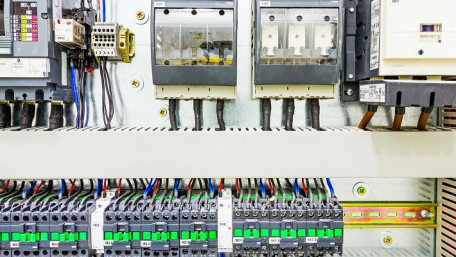
When selecting the right module for the right load, be sure to understand how the load resistance will affect the voltage…
When selecting the right module for the right load, be sure to understand how the load resistance will affect the voltage and current of the output module terminals.
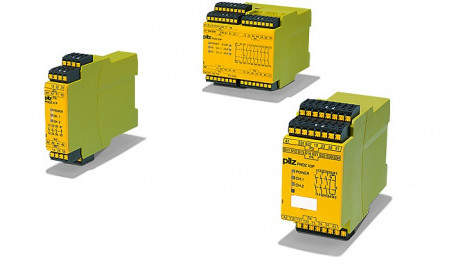
Redundancy and safety are often seen together in industrial safety systems. Safety relays monitor emergency devices to…
Redundancy and safety are often seen together in industrial safety systems. Safety relays monitor emergency devices to switch contacts based on status - but what makes them different from normal relays?
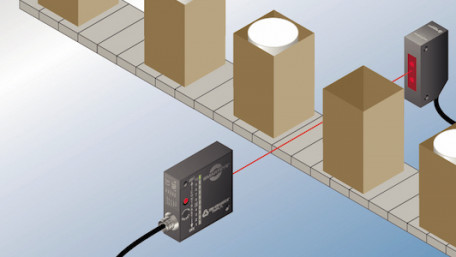
Sensing objects is a tricky business because of the many variables in light, surface texture, distance, color, and other…
Sensing objects is a tricky business because of the many variables in light, surface texture, distance, color, and other factors. Learn how a photo sensor works!
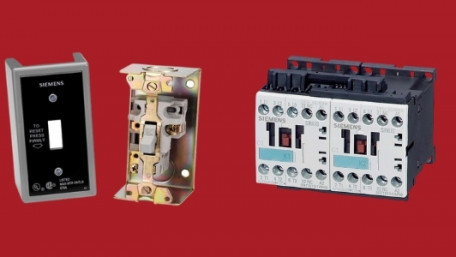
Motors drive all sorts of processes in a facility. Depending on the application, which motor starter is best suited for…
Motors drive all sorts of processes in a facility. Depending on the application, which motor starter is best suited for your needs?

Let’s take a closer look at retrofitting T-cart control with newer technology, such as using laser distance sensors…
Let’s take a closer look at retrofitting T-cart control with newer technology, such as using laser distance sensors versus limit switches.
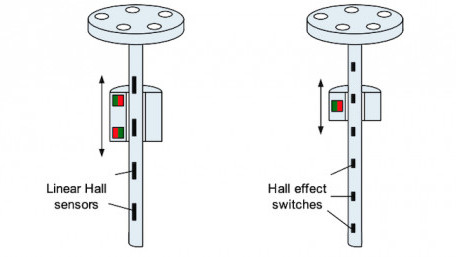
Learn about how Hall-effect sensors are used in linear and electric motor applications, including brushed and brushless…
Learn about how Hall-effect sensors are used in linear and electric motor applications, including brushed and brushless DC motors.
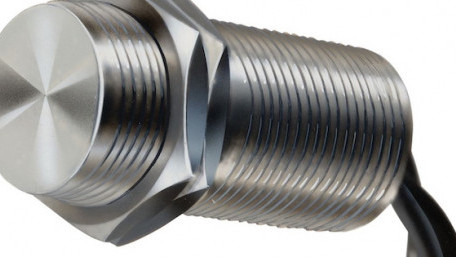
Learn about Hall Effect sensors and how they are used in a variety of ways from robotics to proximity applications.
Learn about Hall Effect sensors and how they are used in a variety of ways from robotics to proximity applications.
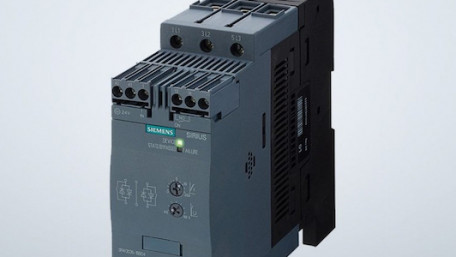
The following will examine how to reduce the wear on motors during startup and compare soft starters and variable…
The following will examine how to reduce the wear on motors during startup and compare soft starters and variable frequency drives (VFDs).
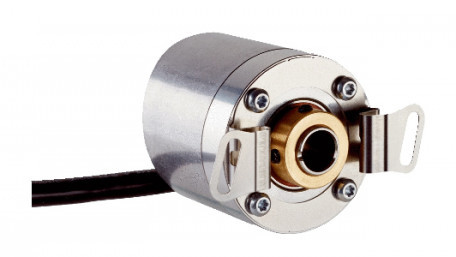
This article discusses how to use sensors with open collector outputs and learning some of the module connections involved.
This article discusses how to use sensors with open collector outputs and learning some of the module connections involved.
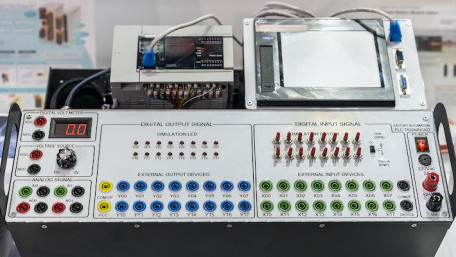
A typical control system uses PNP sensors and tends to be easier to visualize. For opposite polarity systems, the NPN…
A typical control system uses PNP sensors and tends to be easier to visualize. For opposite polarity systems, the NPN sensor is the only compatible sensor type. Learn more about NPN sensors, including characteristics and uses.
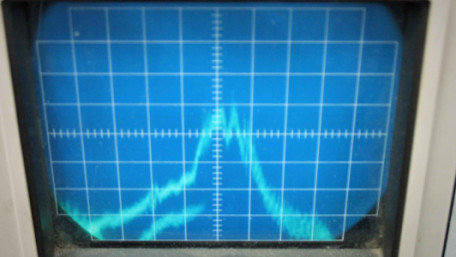
Electrical noise is a common problem inside industrial facilities. The following will explain a few simple strategies for…
Electrical noise is a common problem inside industrial facilities. The following will explain a few simple strategies for reducing this noise.
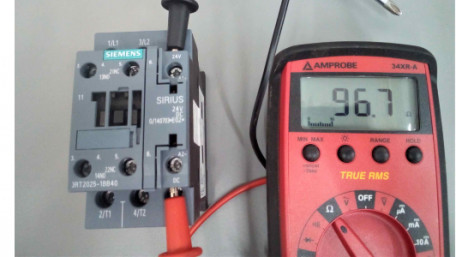
When the power is removed to a circuit, the common measurements of voltage and current prove meaningless. The only…
When the power is removed to a circuit, the common measurements of voltage and current prove meaningless. The only remaining option is to use resistance testing to determine which components and conductors are working.
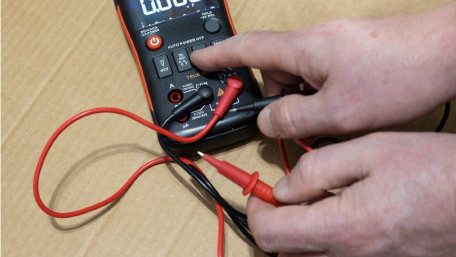
This article will examine and discuss how to measure current with a multimeter, using the standard in-line current…
This article will examine and discuss how to measure current with a multimeter, using the standard in-line current measuring method.
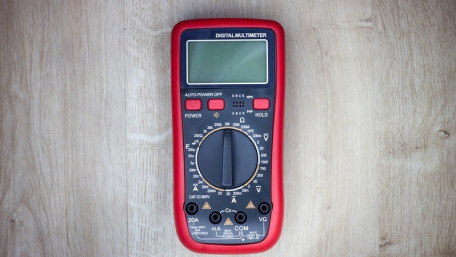
Simple voltage measurements from a multimeter are the most frequently used function in these tools. Some of them are more…
Simple voltage measurements from a multimeter are the most frequently used function in these tools. Some of them are more difficult to understand than others, and this is definitely the case when comparing AC to DC voltage.
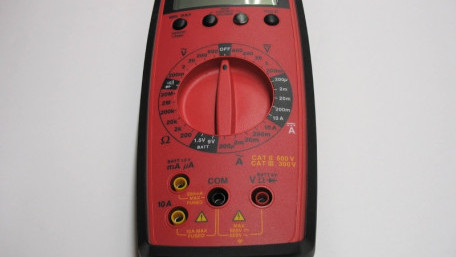
The simplest and most common measurement to obtain using a multimeter is voltage, in fact, they are often called…
The simplest and most common measurement to obtain using a multimeter is voltage, in fact, they are often called ‘voltmeters’ for this reason.
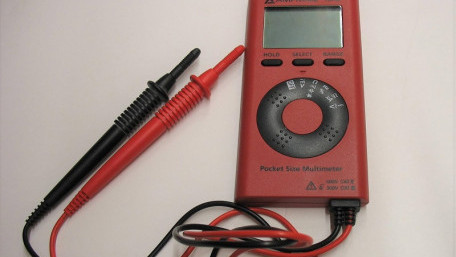
Recognizing the value of a multimeter is a great first step. It’s important to know why a meter may help to save time…
Recognizing the value of a multimeter is a great first step. It’s important to know why a meter may help to save time during design and troubleshooting, and therefore save money.
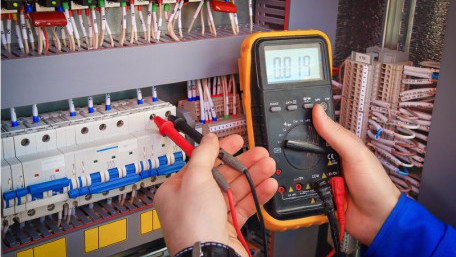
The voltmeter, or more often the multimeter, is an incredible tool, capable of troubleshooting nearly every electrical…
The voltmeter, or more often the multimeter, is an incredible tool, capable of troubleshooting nearly every electrical system and fault in existence.
